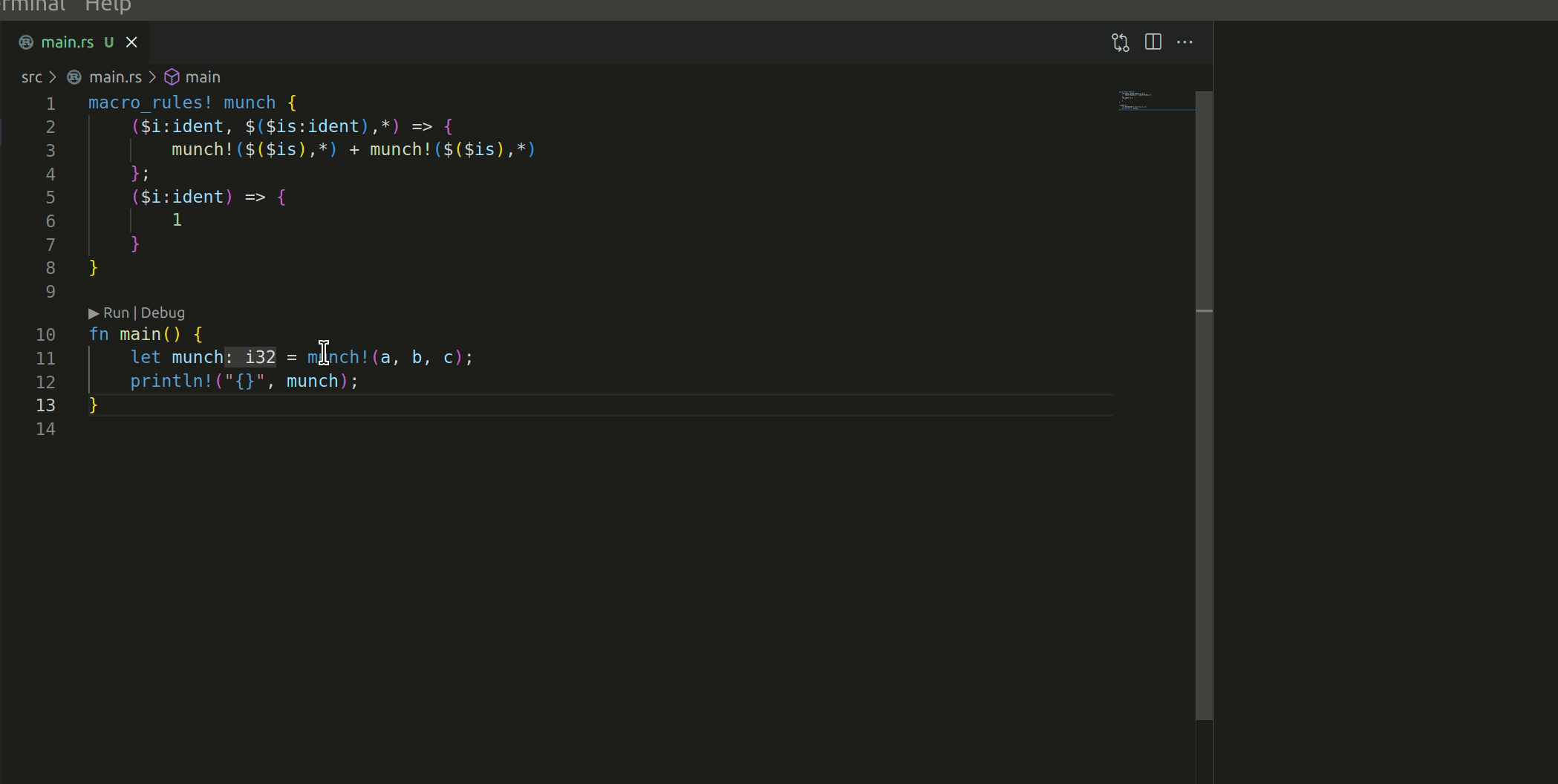Separate into create and apply edit
Rename usages
Hacky name map
Add more tests
Handle non-exhaustive
Add some more TODOs
Private fields
Use todo
Nesting
Improve rest token generation
Cleanup
Doc -> regular comment
Support mut
feat: implement tuple return type to tuple struct assist
This PR implements the `convert_tuple_return_type_to_struct` assist, for converting the return type of a function or method from a tuple to a tuple struct. Additionally, it moves the `to_camel_case` and `char_has_case` functions from `case_conv` to `stdx` so that they can be used similar to `to_lower_snake_case`.
[tuple_return_type_to_tuple_struct.webm](https://github.com/rust-lang/rust-analyzer/assets/52933714/2803ff58-fde3-4144-9495-7c7c7e139075)
Currently, the assist puts the struct definition above the function, or above the nearest `impl` or `trait` if applicable and only rewrites literal tuples that are returned in the body of the function. Additionally, it only attempts to rewrite simple tuple pattern usages with the corresponding tuple struct pattern but does so across files and modules.
I think that this is sufficient for the majority of use cases but I could be wrong. One thing I'm still not sure how to approach is handling `Self` and generics/lifetimes in the tuple type to be extracted. I was thinking of either manually figuring out what lifetimes and generics are in scope and using them (sort of similar to the `generate_function` assist) or maybe using `ctx.sema.resolve_type` and `generic_params` on `hir::Type` but this seems to not deal with lifetimes.
Closes#14293
Bind unused parameter assistant
This PR introduces a new **Bind unused parameter assistant**.
While we do have a QuickFix from `rustc` (prefixing the parameter with an underscore), it's sometimes more convenient to suppress the warning using the following approach:
```rust
fn some_function(unused: i32) {}
```
->
```rust
fn some_function(unused: i32) {
let _ = unused;
}
```
Unify getter and setter assists
This PR combines what previously have been two different files into a single file. I want to talk about the reasons why I did this. The issue that prompted this PR ( and before I forget : this pr fixes#15080 ) mentions an interesting behavior. We combine these two assists into an assist group and the order in which the assists are listed in this group changes depending on the text range of the selected area. The reason for that is that VSCode prioritizes actions that have a bigger impact in a smaller area and until now generate setter assist was only possible to be invoked for a single field whereas you could generate multiple getters for the getter assist. So I used the latter's infra to make former applicable to multiple fields, hence the unification. So this PR solves in essence
1. Make `generate setter` applicable to multiple fields
2. Provide a consistent order of the said assists in listing.
This adds a new assist named "replace named generic with impl" to move
the generic param type from the generic param list into the function
signature.
```rust
fn new<T: ToString>(input: T) -> Self {}
```
becomes
```rust
fn new(input: impl ToString) -> Self {}
```
The first step is to determine if the assist can be applied, there has
to be a match between generic trait param & function paramter types.
* replace function parameter type(s) with impl
* add new `impl_trait_type` function to generate the new trait bounds with `impl` keyword for use in the
function signature
Add action to expand a declarative macro once, inline. Fixes#13598
This commit adds a new r-a method, `expandMacroInline`, which expands the macro that's currently selected. See #13598 for the most applicable issue; though I suspect it'll resolve part of #5949 and make #11888 significantly easier).
The macro works like this:

I have 2 questions before this PR can be merged:
1. **Should we rustfmt the output?** The advantage of doing this is neater code. The disadvantages are we'd have to format the whole expr/stmt/block (since there's no point just formatting one part, especially over multiple lines), and maybe it moves the code around more in weird ways. My suggestion here is to start off by not doing any formatting; and if it appears useful we can decide to do formatting in a later release.
2. **Is it worth solving the `$crate` hygiene issue now?** -- I think this PR is usable as of right now for some use-cases; but it is annoying that many common macros (i.e. `println!()`, `format!()`) can't be expanded further unless the user guesses the correct `$crate` value. The trouble with solving that issue is that I think it's complicated and imperfect. If we do solve it; we'd also need to either change the existing `expandMacro`/`expandMacroInline` commands; provide some option to allow/disallow `$crate` expanding; or come to some other compromise.
add wrapping/checked/saturating assist
This addresses #13452
I'm not sure about the structure of the code. I'm not sure if it needs to be 3 separate assists, and if that means it needs to be in 3 separate files as well.
Most of the logic is in `util.rs`, which feels funny to me, but there seems to be a pattern of 1 assist per file, and this seems better than duplicating the logic.
Let me know if anything needs changes 😁